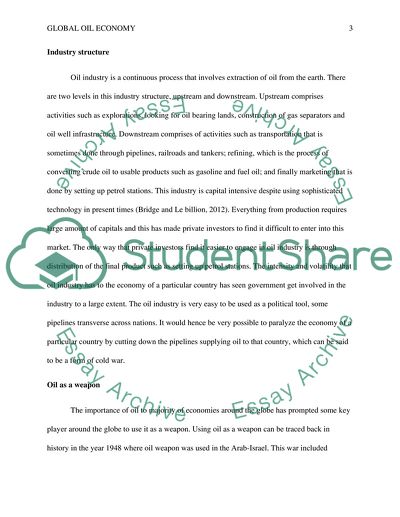Cite this document
(“Assess the extent to which governments shape the global oil economy Essay”, n.d.)
Assess the extent to which governments shape the global oil economy Essay. Retrieved from https://studentshare.org/macro-microeconomics/1692730-assess-the-extent-to-which-governments-shape-the-global-oil-economy-in-your-analysis-consider-the-respective-roles-of-nature-industrial-structure-and-war
Assess the extent to which governments shape the global oil economy Essay. Retrieved from https://studentshare.org/macro-microeconomics/1692730-assess-the-extent-to-which-governments-shape-the-global-oil-economy-in-your-analysis-consider-the-respective-roles-of-nature-industrial-structure-and-war
(Assess the Extent to Which Governments Shape the Global Oil Economy Essay)
Assess the Extent to Which Governments Shape the Global Oil Economy Essay. https://studentshare.org/macro-microeconomics/1692730-assess-the-extent-to-which-governments-shape-the-global-oil-economy-in-your-analysis-consider-the-respective-roles-of-nature-industrial-structure-and-war.
Assess the Extent to Which Governments Shape the Global Oil Economy Essay. https://studentshare.org/macro-microeconomics/1692730-assess-the-extent-to-which-governments-shape-the-global-oil-economy-in-your-analysis-consider-the-respective-roles-of-nature-industrial-structure-and-war.
“Assess the Extent to Which Governments Shape the Global Oil Economy Essay”, n.d. https://studentshare.org/macro-microeconomics/1692730-assess-the-extent-to-which-governments-shape-the-global-oil-economy-in-your-analysis-consider-the-respective-roles-of-nature-industrial-structure-and-war.


